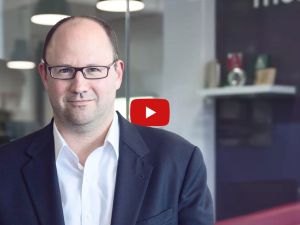A pact between the North and South to address climate change and economic development.
Last week, an informal summit was held in Paris to solidify the ideas that emerged from the latest COP climate summit in Egypt, in preparation for the upcoming conference in the United Arab Emirates at the end of 2023.
It was attended by 30 heads of state and government, as well as the US Treasury Secretary, Janet Yellen, Chinese Premier Li Qiang, the new President of the World Bank, Ajay Banga, and the Secretary-General of the United Nations, Antonio Guterres.
The summit concluded with an agreement to reform the current global financial system. It was also agreed that the international system of public lending supported by the World Bank and the International Monetary Fund has proven its worth over the years but is no longer able to address current global challenges.
Achievements
Despite being an informal event and preparation for the upcoming COP, some important points were agreed.
The World Bank announced its intention to include a new clause in agreements with the most vulnerable countries, allowing the suspension of debt payments in the event of natural disasters. The new President of the World Bank intends to transform the institution’s culture to be more sustainable.
The roadmap for a new global financial pact
The roadmap discussed in Paris contains a series of proposals that will need to be developed, implemented and subsequently presented at future G20 meetings, annual meetings of the World Bank, the International Monetary Fund, COP 28, and the Future Summit scheduled for September.
Some of the objectives outlined in the roadmap have already been achieved at the Paris summit. For example, the World Bank has agreed to begin suspending debt payments for countries affected by climate disasters. The caveat in this case is that the flexibility will only apply to new contracts.
Moneyfarm and the Green Model
Achieving sustainable development goals and reaching an agreement between the North and South to address climate change and economic development together are long-term objectives that mark an important step towards carbon neutrality.
While last week’s meeting in Paris led to new public finance developments, the decarbonisation process also requires the assistance of private investors.
Funds that consider sustainability in investment have grown exponentially between 2019 and 2022. However, in 2022, there was a stabilisation of growth due to the conflict in Ukraine, resulting in increased commodity prices and interest rates. These factors, however, have not dampened positive attitudes on ESG.
Events like this summit remind us that global finance and international political debate remain central to the fight against climate change.
Moneyfarm remains part of this. We believe in the importance of considering climate risks in investments. Among the objectives of our ESG portfolios is to consider greenhouse gas emissions and revenue sources of companies in the portfolio, as well as increase the share of investments in companies or instruments that actively contribute to generating a positive impact in the fight against climate change.
*As with all investing, financial instruments involve inherent risks, including loss of capital, market fluctuations and liquidity risk. Past performance is no guarantee of future results. It is important to consider your risk tolerance and investment objectives before proceeding.





